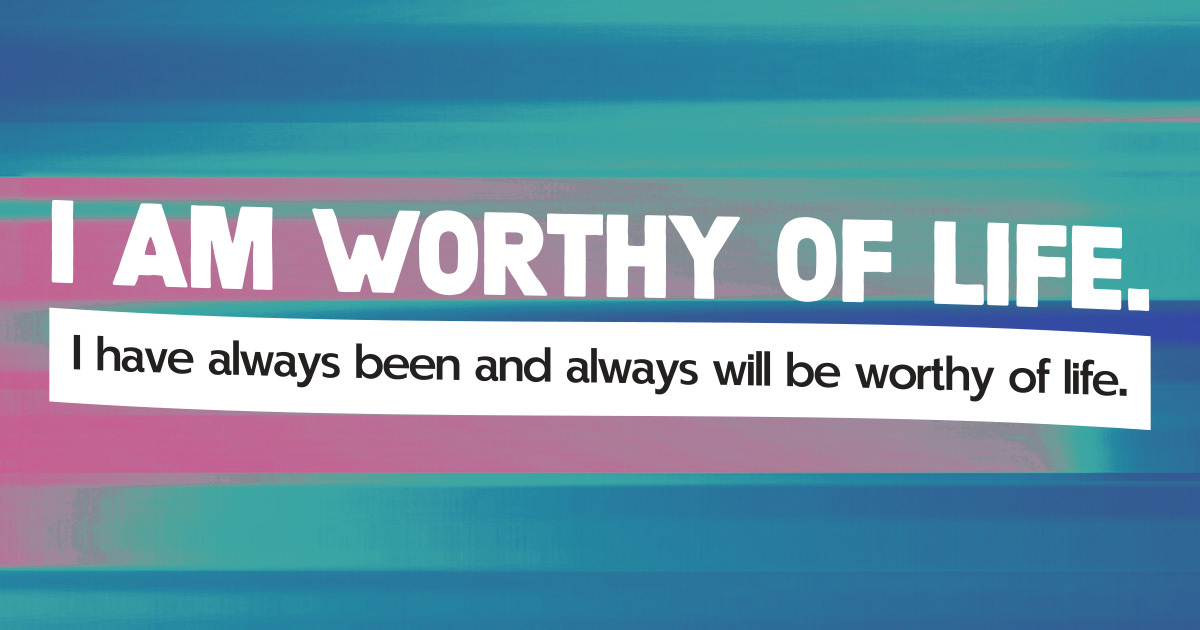I used to think and hope that I just needed to heal to a certain degree so that I would no longer experience suicidality. While therapy, medication, and regular awareness of my mood state relating to bipolar disorder have helped me to cope and manage suicidal thoughts, I thought if I kept attending therapy and learned even more skills, maybe one day, suicidal thoughts would be a thing of the past. Now, I accept the reality that I may very well continue to experience suicide ideation periodically for the rest of my life.
Suicidal thoughts can be a symptom of certain mood states—and like a runny nose to a cold—they come with illness. Because I have bipolar and associated mood episodes, they are something I continue to face. It’s almost a predictable symptom for me. If I’m unwell, say a -5 or lower (on a mood scale of -10 to +10), my brain starts in with the negative self-talk and the stories. “You are unwell. This makes you a burden to people around you.” And on and on… I also, on occasion, experience some of these thoughts when I am in a “mixed episode.” This can be especially challenging, because identifying a mixed episode, even after practicing identifying my mood states for five and a half years, can still be tricky.
When I can recognize the mood state I am in, I am better prepared when the negative self-talk and other thoughts come knowing. “Hello Thought. I’m not surprised you’re here, because you are a consequence of depression.” This works in addressing the thought as opposed to simply believing its harsh claim.
I take these symptoms seriously and treat them accordingly. I breathe into where it hurts, I challenge thoughts by reframing them, and I email my support network to let them know what’s happening (my husband, mom, therapist, and psychiatrist) so they can help me create an action plan that reminds me: I am worthy of life. I have always been and always will be worthy of life.

I also allow myself to feel depressed. This is the hardest part sometimes, but I will seek out activities that I might engage in if I were physically unwell, such as putting together a puzzle, watching a movie, or taking a warm bath.
I think of my friends and how I would care for them if they felt as I do.
It’s important to initiate activities and not linger in my thoughts. Self-care during this time means that I need to work to confront the thoughts that project unkind things about myself. I have to remember that I am experiencing depression and a major symptom of that depression is negative self-talk and the feeling that I’m a burden.
I’m trying. I’m working on it. Sometimes I have a hard day and the hope of a better day carries me through. Sometimes I can’t help but cry during these trying states and wonder if anyone loves me—or why they even would. Depression whispers like the all-knowing authority, especially when I’m tired, when I feel like giving up, or when I’ve made a mistake.
It’s challenging to separate myself from these thoughts, but I keep trying. I am learning to acknowledge the presence of a symptom without allowing it to make decisions for my life.
We’re here to remind you of the truth that you are not alone. We encourage you to use TWLOHA’s FIND HELP Tool to locate professional help and to read more stories like this one here. If you reside outside of the US, please browse our growing International Resources database. You can also text TWLOHA to 741741 to be connected for free, 24/7 to a trained Crisis Text Line counselor. If it’s encouragement or a listening ear that you need, email our team at [email protected].
Jennifer Todd
I wish my daughter could have read this 😭
TWLOHA
Jennifer,
We’re so sorry. We wish she could have too. Please know we’re thinking of you and sending out love.
With Hope,
TWLOHA